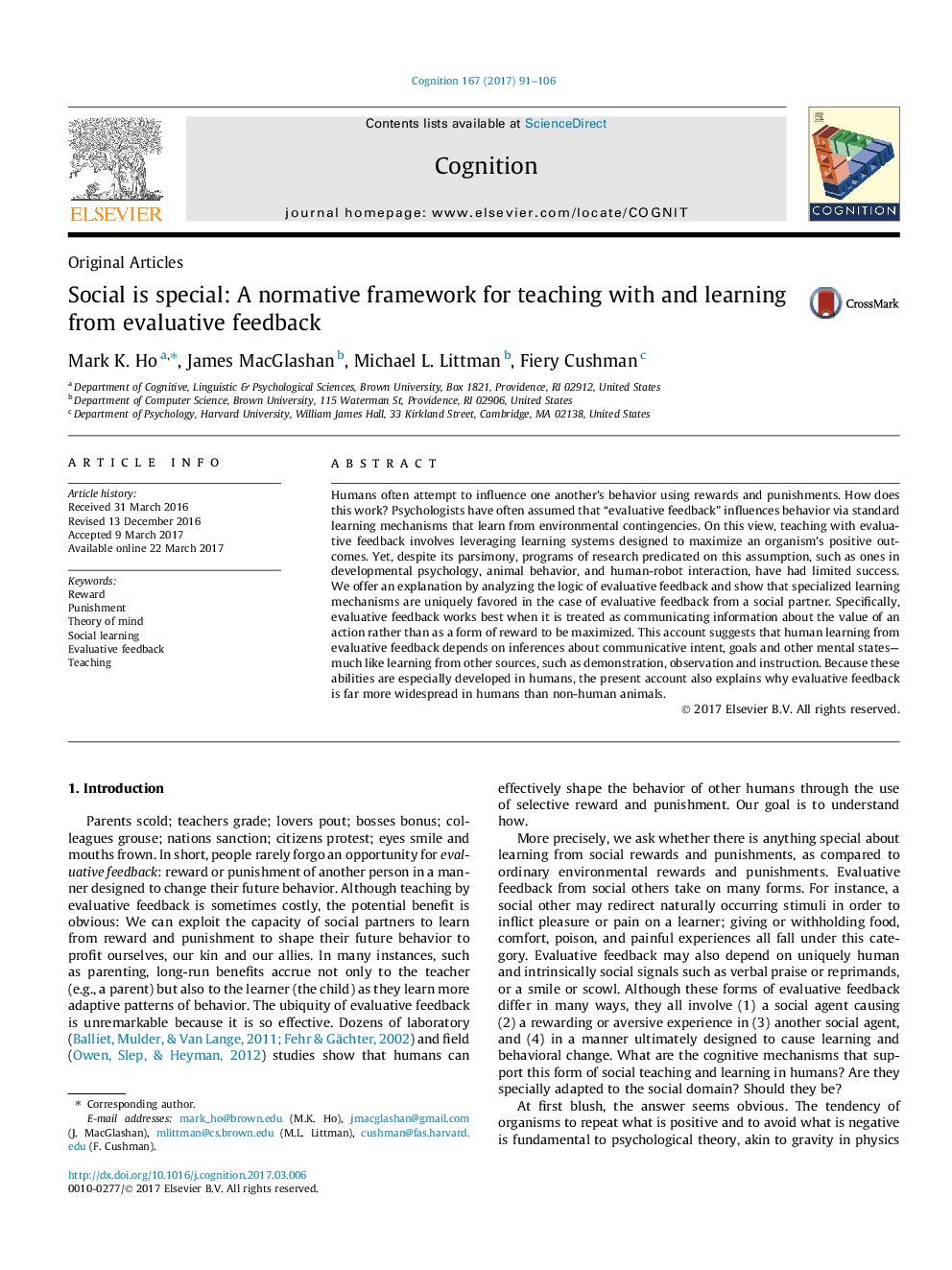| کد مقاله | کد نشریه | سال انتشار | مقاله انگلیسی | نسخه تمام متن |
|---|---|---|---|---|
| 5041482 | 1474100 | 2017 | 16 صفحه PDF | دانلود رایگان |
- Teaching with and learning from reward/punishment is ubiquitous in humans.
- Yet many fields struggle to provide a satisfying account of how it works.
- Reinforcement Learning concepts can shed light on learning from social feedback.
- Learning from social rewards/punishments differs from non-social ones.
- Learning from social reward/punishments leverages Theory of Mind.
Humans often attempt to influence one another's behavior using rewards and punishments. How does this work? Psychologists have often assumed that “evaluative feedback” influences behavior via standard learning mechanisms that learn from environmental contingencies. On this view, teaching with evaluative feedback involves leveraging learning systems designed to maximize an organism's positive outcomes. Yet, despite its parsimony, programs of research predicated on this assumption, such as ones in developmental psychology, animal behavior, and human-robot interaction, have had limited success. We offer an explanation by analyzing the logic of evaluative feedback and show that specialized learning mechanisms are uniquely favored in the case of evaluative feedback from a social partner. Specifically, evaluative feedback works best when it is treated as communicating information about the value of an action rather than as a form of reward to be maximized. This account suggests that human learning from evaluative feedback depends on inferences about communicative intent, goals and other mental states-much like learning from other sources, such as demonstration, observation and instruction. Because these abilities are especially developed in humans, the present account also explains why evaluative feedback is far more widespread in humans than non-human animals.
225
Journal: Cognition - Volume 167, October 2017, Pages 91-106
